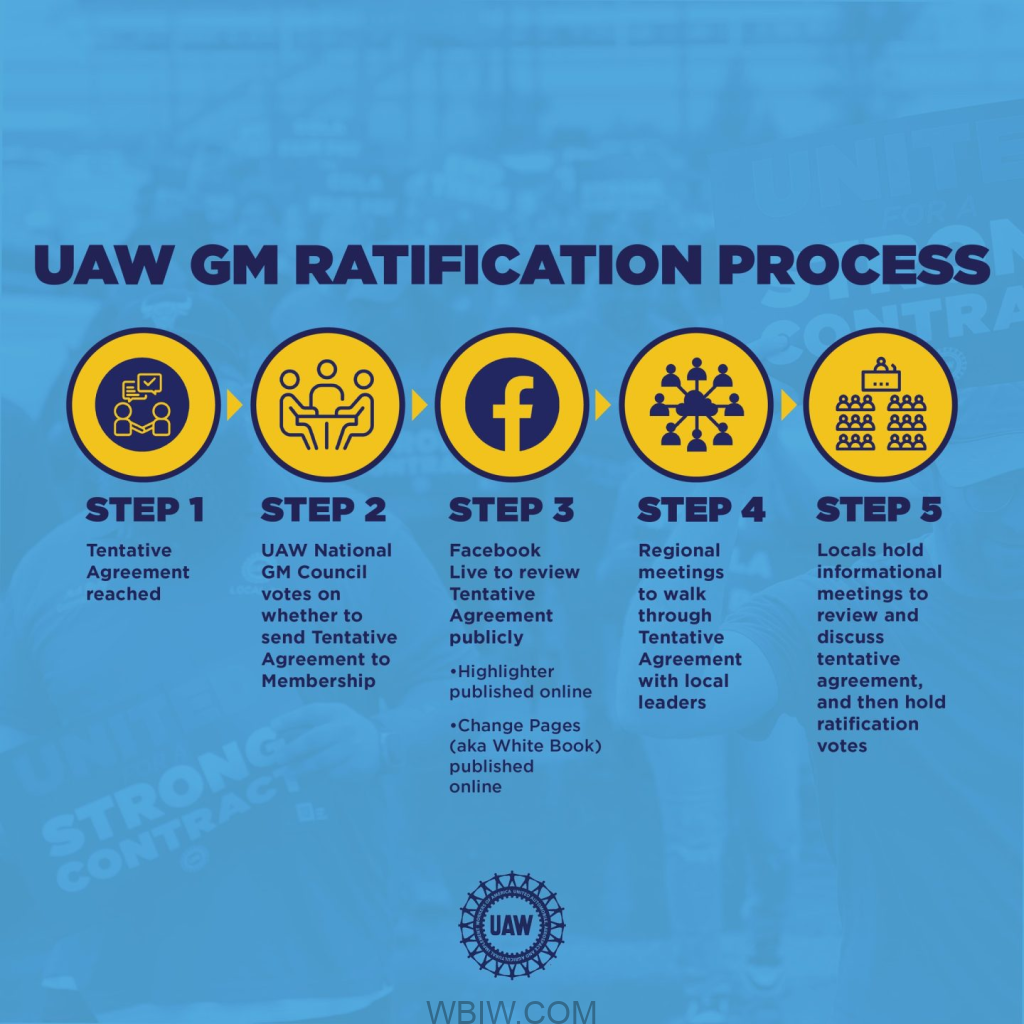
INDIANA — A tentative contract agreement between General Motors and the United Auto Workers union appears to be headed for defeat that ended roughly six weeks of labor strikes against the automaker.
The union hasn’t posted final vote totals, but workers at five large factories who finished voting in the past few days have turned down the four-year and eight-month deal by fairly large margins. The facilities combined represent more than 23,000, or half, of GM’s 46,000 union employees.

As of Wednesday morning, the UAW had not updated its vote tracker for GM to reflect several plants that voted.
The vote tracker on the UAW’s website shows the deal winning by 686 votes. But those totals do not include votes from GM assembly plants in Fort Wayne, Indiana; Wentzville, Missouri; Lansing Delta Township and Lansing Grand River in Michigan, and a powertrain plant in Toledo, Ohio, which all voted against the deal, according to local union officials.
In most cases, the vote tallies ranged from 55% to around 60% against the contract.
Several small facilities as well as assembly plants in Michigan and Kansas have voted in favor of the deal.
Workers were awaiting totals from a large assembly plant in Arlington, Texas, but UAW officials said they expected the contract to be voted down.
UAW Local 440 members at GM Bedford Casting Operations who voted:
- 234 hourly production workers voted – 101 yes, 131 no; 43.16 percent voted yes and 57 percent voted no.
- 122 hourly skilled trade workers voted – 93 yes, 29 no; 76 percent voted yes and 24 percent voted no.

The Bedford plant is served by two unions the United Auto Workers which represent the production workers and the International Brother Electrical Workers which represent the skill trades.
UAW members, especially veteran workers, have voiced disapproval of the deal, citing inflated expectations created by UAW President Shawn Fain, who called for and ultimately failed to secure a 32-hour workweek and better retirement benefits.

The UAW declined to comment. GM did not immediately respond to a request for comment.
A rejection of the deal, which was reached on October 30, would prolong a historically contentious round of negotiations between the UAW and Detroit automakers. Similar tentative agreements at Ford Motor and Stellantis have thus far received higher voter approvals among those automakers’ unionized workforces.
If the GM deal is voted down, UAW President Fain and other union leaders will decide how to proceed and secure a better deal for GM’s union workers. They could reinitiate strikes against the automaker, attempt to reopen negotiations, or both.



